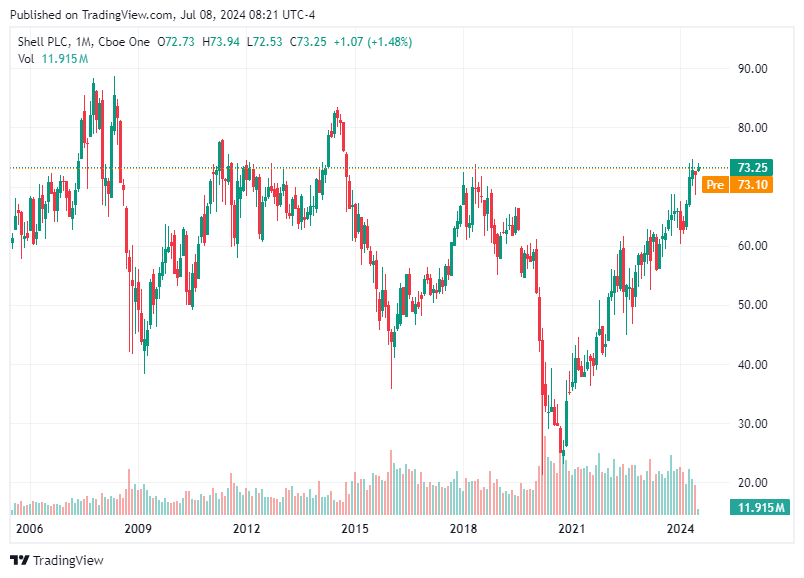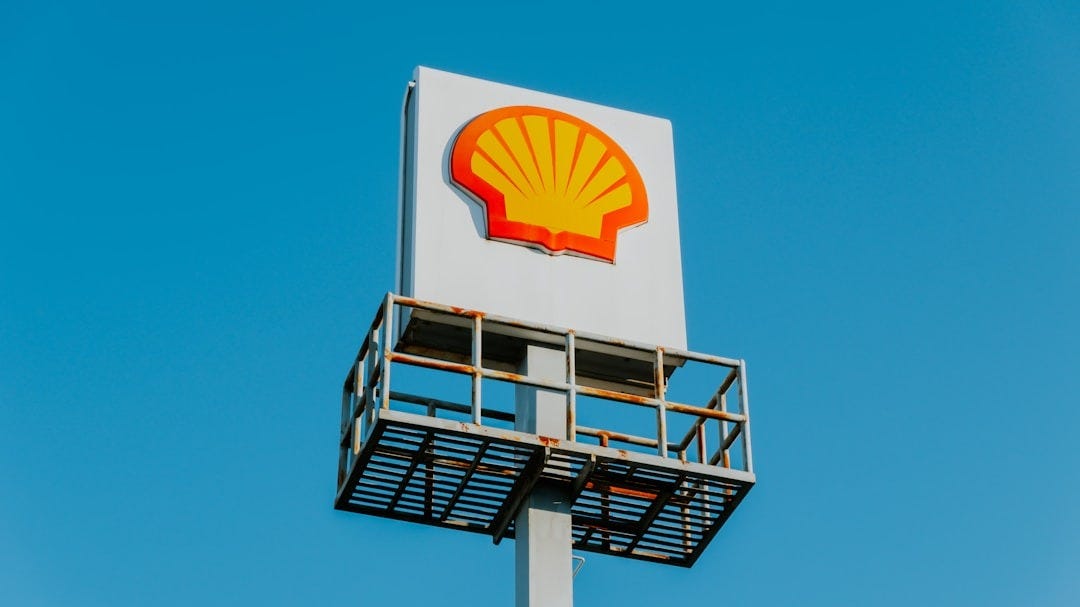Shell Faces Up To $2 Billion Impairment Over Biofuels Plant Delay
Shell Faces Up to $2 Billion Impairment Due to Biofuels Plant Delay.

Disclaimer: This article is based on information available as of the publication date. The data in this article is subject to updates and changes. The author does not endorse or promote any financial investments, and readers should conduct their own research before making any investment decisions.
Real-time information is available daily at https://stockregion.net
Shell, a player in the global energy sector, is poised to register up to $2 billion in post-tax impairments following the postponement of a biofuels plant construction project. This development comes amidst challenging market conditions affecting European energy companies, including Shell. The company's core gas division is anticipated to experience a decline in trading performance in the upcoming quarter.
The impairments that Shell expects to record will be reflected in its second-quarter earnings for 2024. These impairments are associated with two main projects: a delayed biofuels plant under construction in Rotterdam, Netherlands, and a chemicals facility in Singapore. According to Bloomberg, Shell’s decision to pause construction on the Dutch biofuels plant is aimed at determining the best path forward for the project. This decision will result in a non-cash post-tax impairment ranging from $600 million to $1 billion.
The biofuels plant in Rotterdam is an integral part of Shell's strategy to produce sustainable aviation fuel and renewable diesel, anticipating rising demand for low-carbon energy. The delay in this project accentuates the complexities and challenges faced by energy companies as they transition towards more sustainable energy solutions. The completion of this facility is expected to contribute to meeting the increasing demand for low-carbon energy, especially in the aviation sector. The financial impact of the delays at the Rotterdam plant shows the importance of meticulous planning within the evolving energy landscape. By pausing the project, Shell aims to reassess and identify the most efficient and effective approach to advance its sustainability goals while managing shareholder capital prudently.
In addition to the Rotterdam biofuels plant, Shell anticipates a further writedown of $600 million to $800 million related to its chemicals and products facility in Singapore. This facility is slated to be sold to a joint venture between commodity trader Glencore Plc and Indonesia’s PT Chandra Asri Pacific. This sale aligns with Shell’s broader strategy of optimizing its asset portfolio and focusing on areas with the greatest potential for growth and value creation. The writedown related to the Singapore facility highlights the financial adjustments required during asset divestitures and the reallocation of resources within the company. By selling the facility, Shell aims to streamline its operations and enhance its focus on core business areas that align with its long-term objectives.
Impact on Gas Trading Performance
Shell's gas trading results are expected to decline in the second quarter of 2024 due to seasonal shifts in the market. Despite the anticipated decline, the performance remains consistent with the division's results from the previous year. The gas trading unit has been a driver of profits for Shell in recent years, delivering exceptional earnings at the end of 2023 and a robust performance in the first quarter of 2024. The fluctuations in gas trading performance reveals the inherent volatility of energy markets and the necessity for adaptive strategies to navigate these changing market conditions. Shell’s ability to generate profits from its gas trading activities demonstrates the company’s expertise in leveraging market opportunities while effectively managing risks.
Despite the financial challenges posed by the impairments and current market conditions, Shell remains committed to achieving net zero emissions by 2050. The company continues to prioritize sustainability initiatives and integrate environmental considerations into its business operations. Shell’s approach to using shareholder capital in a measured and disciplined manner reflects its dedication to balancing financial performance with environmental responsibility. Shell has undertaken efforts to improve company performance and boost investor returns through measures such as job eliminations, asset sales, and adjustments to its carbon emissions reduction pace. These actions aim to enhance operational efficiency and position the company for long-term success in a rapidly evolving energy landscape.
Looking forward, Shell’s review of its projects and asset portfolio will play a pivotal role in shaping its future direction. The delay in the Rotterdam biofuels plant and the sale of the Singapore chemicals facility are part of a broader effort to optimize resource allocation and focus on high-impact areas. By reassessing project timelines and making informed decisions about asset divestitures, Shell aims to strengthen its competitive position and drive sustainable growth.
Navigating Market Volatility
The energy sector is inherently volatile, influenced by a myriad of factors including geopolitical tensions, regulatory changes, technological advancements, and shifting consumer preferences. For companies like Shell, navigating this volatility requires a blend of foresight, operational agility, and robust risk management frameworks. One of the challenges for energy companies is adapting to evolving regulatory landscapes. Governments around the world are implementing increasingly stringent regulations aimed at reducing carbon emissions and promoting renewable energy. For Shell, staying ahead of these regulatory changes is crucial. This involves not only compliance but also leveraging these changes as opportunities to innovate and lead in the development of sustainable energy solutions.
Technological innovation plays a critical role in the energy sector’s transition towards sustainability. Shell’s investments in research and development are geared towards discovering new methods and technologies to enhance energy efficiency, reduce emissions, and develop alternative energy sources. These advancements are essential for maintaining competitive advantage and achieving long-term sustainability goals.
Consumer Preferences and Social Responsibility
Consumer preferences are shifting towards more sustainable and environmentally friendly energy solutions. Companies are increasingly held accountable for their environmental impact and social responsibility. For Shell, aligning business strategies with these changing preferences is vital. This involves not only developing sustainable energy products but also transparent reporting and active engagement with stakeholders to foster trust and credibility. The financial health of energy companies like Shell is closely tied to their ability to attract and retain investment. Transparent communication about financial performance, initiatives, and long-term goals is essential to maintain investor confidence. Shell’s commitment to using shareholder capital prudently and its efforts to boost investor returns reflect a balanced approach to financial management and growth.
Shell’s announcement of up to $2 billion in impairments due to the delay of a biofuels plant and the sale of a chemicals facility presents the challenges and complexities faced by energy companies in today’s dynamic market environment. The company’s decisions to pause construction and optimize its asset portfolio demonstrate a commitment to balancing financial performance with sustainability goals. The anticipated impairments, while significant, are part of a broader effort to position Shell for future growth and resilience. By focusing on priorities and leveraging market opportunities, Shell aims to navigate the evolving energy landscape and continue delivering value to its shareholders.
Disclaimer: This article is based on information available as of the publication date. The data in this article is subject to updates and changes. The author does not endorse or promote any financial investments, and readers should conduct their own research before making any investment decisions.
Real-time information is available daily at https://stockregion.net


